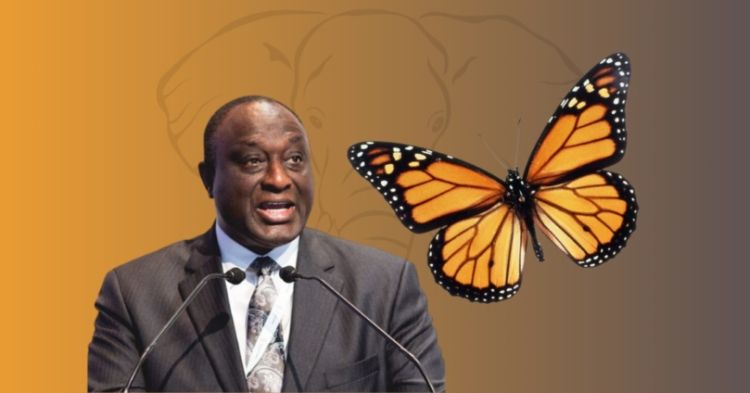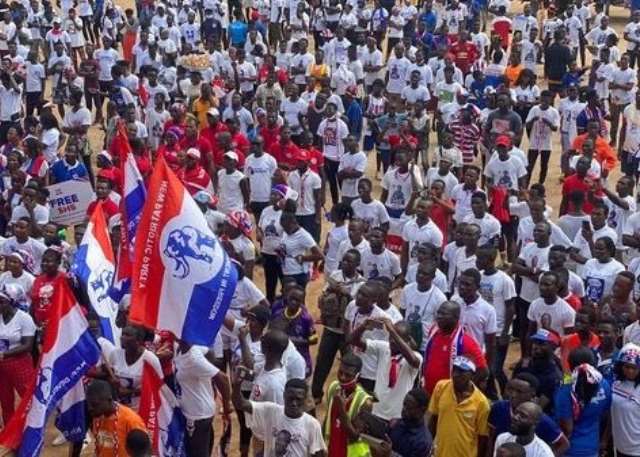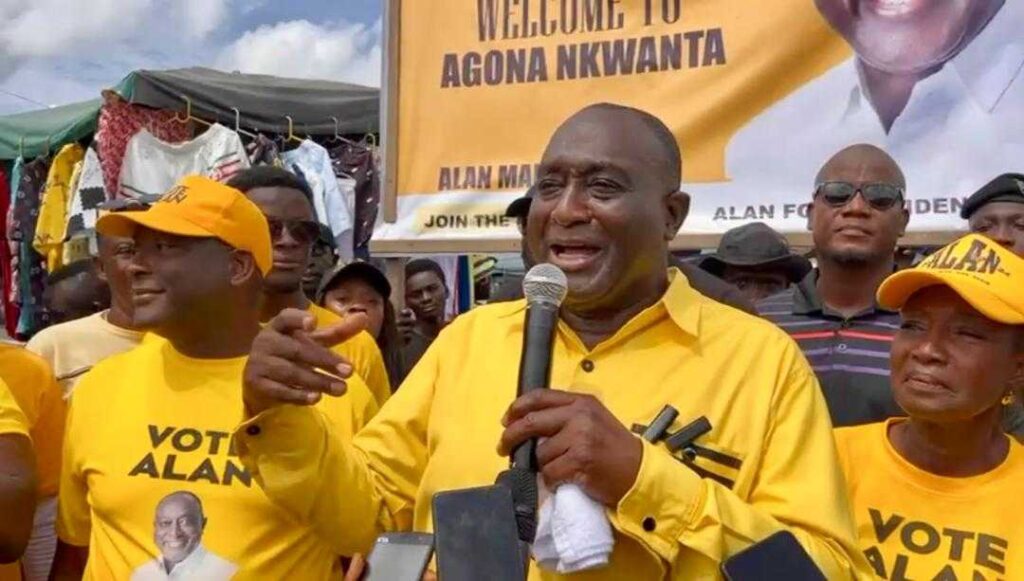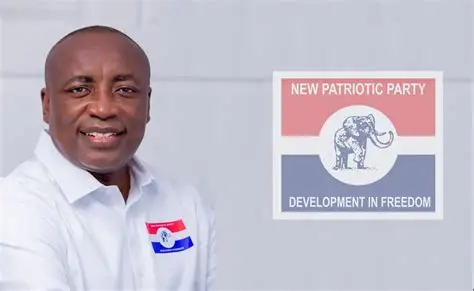New Patriotic Party (NPP) flagbearer aspirant Kwabena Agyepong has expressed deep disappointment over Alan Kyerematen’s decision to leave the governing party and establish a new political movement, describing the move as personally hurtful.
Mr. Agyepong referred to Kyerematen as “a big brother,” saying he was saddened that someone he deeply respected had chosen to break away from the party they both served for decades.
“I’m pained because Alan is like a big brother to me,” Agyepong said. “It’s painful that he’s left the party. I still consider him a brother, but I’m disappointed in his decision.”
Mr. Agyepong and Mr. Kyerematen share a long history within the NPP, both having served in key roles during different administrations. Their relationship dates back to the party’s formative years when they worked together to advance the NPP’s liberal democratic ideals.
Agyepong’s comments highlight the personal impact of Kyerematen’s departure, which has sparked emotional and political reactions within the NPP. Party insiders say many long-time members are grappling with how his exit might affect unity ahead of the 2028 general elections.

Alan Kyerematen recently announced the transformation of his political platform, the Movement for Change, into a new party known as the United Party Plus (UP Plus). The rebranding was formally unveiled in Accra on Thursday, October 23, drawing inspiration from the historic “United Party” that formed part of Ghana’s pre-independence political landscape.
According to Mr. Kyerematen, the new name represents continuity, unity, and a desire to “revive the spirit of inclusive politics” that shaped Ghana’s early democratic evolution.
At the official launch, UP Plus Chairman Abubakar Saddique Boniface said the party aims to champion competence, transparency, and transformational leadership.
“Today, we present to you the United Party or UP Plus. It’s a new phase of Ghana’s political journey,” Boniface declared. “Our mission is to bring credible and visionary leadership into public life, one that prioritises competence and accountability over personality politics.”
Kyerematen’s departure from the NPP and the subsequent launch of UP Plus carry significant implications for Ghana’s political landscape. As a former Minister of Trade and Industry, former Ambassador to the United States, and long-serving NPP member, his decision marks one of the most high-profile defections in recent political history.
Analysts suggest that the move could reshape the competition ahead of Ghana’s 2028 general elections, especially among middle-class and youth voters seeking alternative political voices. Kyerematen’s emphasis on inclusive governance, economic empowerment, and competence-based leadership resonates with a growing segment of Ghanaians disillusioned with the traditional NPP–NDC duopoly.
However, critics argue that new parties in Ghana often struggle to gain traction due to limited funding, entrenched political loyalties, and the challenges of building nationwide grassroots structures.

Kwabena Agyepong, who served as NPP General Secretary between 2014 and 2015, has been advocating for internal renewal within the party. He believes the NPP can only remain relevant if it reconnects with its founding principles of service, integrity, and people-centered leadership.
While expressing personal disappointment over Kyerematen’s decision, Agyepong also reaffirmed his commitment to strengthening the NPP’s democratic values.
“Our party must reflect the hopes and aspirations of Ghanaians, especially the youth,” Agyepong noted. “That’s the only way we can maintain trust and win future elections.”
His statement comes amid calls from some NPP members for reconciliation and introspection following recent internal contests and leadership transitions.
Ghana’s multiparty democracy has seen several breakaway movements over the years, most of which emerged from disagreements within the two major parties. Political scientists note that while many such movements begin with enthusiasm, few sustain long-term influence due to structural challenges.
Dr. Kyerematen’s UP Plus, however, could represent a new model—one that focuses on civic engagement and issue-based politics rather than traditional party machinery. His message of “national renewal through competent leadership” may appeal to undecided voters and professionals frustrated by partisan bickering.
Yet, the test for the UP Plus will be in converting public interest into electoral strength, especially at the constituency and polling station levels.

Alan Kyerematen’s exit and Kwabena Agyepong’s emotional reaction underline a broader question about Ghana’s evolving political culture: Can established politicians break away to successfully introduce a new political force?
For Ghana and the wider African continent, this development offers insight into the challenges of political renewal within long-dominant parties. As younger voters increasingly demand accountability, inclusivity, and practical solutions, both the NPP and NDC may face stronger competition from emerging movements like UP Plus.
The episode also reveals the personal cost of political divergence—how alliances built over decades can fracture under the weight of ambition, ideology, or differing visions for the future.
As Ghana approaches another pivotal electoral cycle, both the ruling NPP and the opposition will likely watch how Kyerematen’s new party performs in mobilising support. For Agyepong, his disappointment may be personal—but it also echoes the concerns of many who fear fragmentation could weaken the country’s democratic stability.
Whether UP Plus can translate its message of “competence and change” into real political influence remains to be seen. What is clear is that Ghana’s political terrain continues to shift, driven by both loyalty and longing for transformation.
Read also: Ayariga Blames Afenyo-Markin for ECG’s Mounting Debts and Mismanagement

